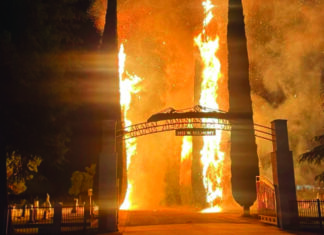Although some 30 countries have already recognized the Armenian Genocide, recognition by the legislative branch of the most powerful nation in the world has a unique significance and far-reaching impact.
First, the US House of Representatives passed Resolution 296 in October by an overwhelming majority (405-11) and then the US Senate on December 12 by a unanimous vote, passed its own resolution.
The causes and consequences of these actions still continue to reverberate in many political quarters in the world, including in the US, Turkey, Armenia and now, also, in Israel.
This is not the first time that the US government, on different levels, has recognized the Armenian Genocide. President Ronald Reagan did so in April 1981, calling it by its real name. In the subsequent 20 years, the issue had become a political football. Every year in April, the presidential proclamation would dance around the term “genocide,” hopes would be raised in Armenian circles and then be dashed, angry words would emanate from Turkey and then, everything would revert back to normal.
There has never been room for any legislator to dispute the documents and veracity of the Armenian Genocide. The only concern was not to anger Ankara to cause a disruption in Turkish-American relations. That is why the only remaining excuse was “it is not the time to take up the Genocide issue.” But as Sen. Robert Menendez stated recently on the floor of the Senate, it is always time to recognize the Armenian Genocide.
Governments do not make decisions based on charity or humanitarian concerns, even if the latter is touted sometimes publicly. Their decisions are based on realpolitik. Today, Rohingya Muslims in Myanmar are subject to mass murder by government forces. It seems that it is not in the interest of any power to intervene forcefully and stop the carnage. The same scenario unfolded in Rwanda in the 1990s. Despite the alarm sounded by the United Nations Peacekeeping force command in that country about the imminent genocide of civilians, no country intervened and later on, President Bill Clinton’s apology for not having prevented the genocide was not able to bring back 800,000 souls.










